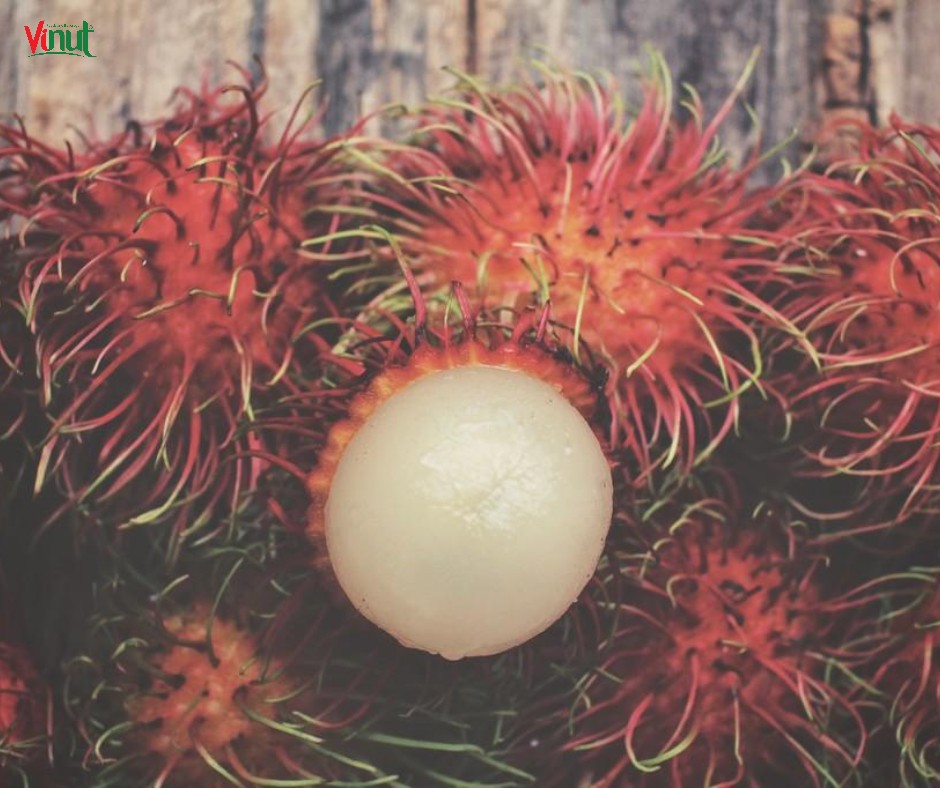
News
Top 10 Rambutan Benefits and Side Effects

Rambutan, with its spiky exterior and sweet, juicy flesh, is a tropical fruit that offers a delightful blend of taste and nutrition. While it comes packed with numerous health benefits, it’s essential to be aware of potential side effects too. Let’s explore the top 10 benefits of consuming rambutan along with some side effects you should know about.

Introduction to Rambutan
Rambutan, scientifically known as Nephelium lappaceum, is native to Southeast Asia, particularly Indonesia, Malaysia, Thailand, and the Philippines. It belongs to the Sapindaceae family, which also includes lychee and longan. The name “rambutan” is derived from the Malay word “rambut,” which means hair, referring to its hairy outer skin.
Nutritional Profile of Rambutan
Rambutan is a rich source of essential nutrients, including vitamin C, vitamin A, potassium, iron, calcium, and antioxidants. It also contains dietary fiber, which aids in digestion and promotes gut health. With its low calorie and fat content, rambutan makes for a nutritious addition to your diet.
Top 10 Health Benefits of Rambutan
1. Boosts Immune System
Rambutan is loaded with vitamin C, a powerful antioxidant that strengthens the immune system and helps the body fight off infections and diseases. Regular consumption of rambutan may reduce the risk of colds, flu, and other illnesses.
2. Improves Digestive Health
The high fiber content in rambutan promotes healthy digestion by regulating bowel movements and preventing constipation. It also supports the growth of beneficial gut bacteria, which aids in nutrient absorption and overall digestive health.

3. Supports Weight Loss
Despite its sweet taste, rambutan is relatively low in calories and contains no cholesterol or saturated fats. Its high fiber content helps you feel full for longer, reducing hunger cravings and supporting weight management when consumed as part of a balanced diet.
4. Enhances Skin Health
The vitamin C and antioxidants found in rambutan play a vital role in maintaining healthy skin by promoting collagen production and protecting against oxidative damage from UV radiation and environmental pollutants. Regular consumption of rambutan may help keep your skin youthful and radiant.
5. Regulates Blood Pressure
Potassium, a mineral abundant in rambutan, helps regulate blood pressure by balancing sodium levels in the body. Including rambutan in your diet may contribute to lower blood pressure levels and reduce the risk of hypertension and cardiovascular disease.
6. Provides Antioxidant Protection
Rambutan contains potent antioxidants, such as flavonoids and phenolic compounds, which neutralize harmful free radicals and protect cells from oxidative stress. Antioxidants play a crucial role in reducing inflammation and lowering the risk of chronic diseases like cancer and heart disease.

7. Strengthens Bones
Calcium, another essential mineral found in rambutan, is vital for maintaining strong and healthy bones. Consuming rambutan regularly may help prevent osteoporosis and reduce the risk of fractures, particularly in older adults.
8. Aids in Diabetes Management
Despite its sweet taste, rambutan has a low glycemic index, meaning it causes a gradual increase in blood sugar levels compared to high-glycemic foods. This makes it a suitable fruit choice for individuals with diabetes when consumed in moderation as part of a balanced diet.
9. Improves Cognitive Function
The antioxidants and flavonoids in rambutan have been linked to improved cognitive function and a reduced risk of neurodegenerative diseases like Alzheimer’s. Including rambutan in your diet may help support brain health and cognitive performance as you age.
10. Boosts Energy Levels
Rambutan contains natural sugars like fructose and glucose, which provide a quick and sustainable source of energy. Whether eaten as a snack or added to smoothies and salads, rambutan can help boost your energy levels and keep you feeling energized throughout the day.
Potential Side Effects of Rambutan
While rambutan offers numerous health benefits, it may cause allergic reactions in some individuals, particularly those with latex allergies. The fruit’s skin and sap contain compounds similar to those found in latex, which can trigger allergic symptoms such as itching, swelling, and difficulty breathing in sensitive individuals. Additionally, consuming rambutan in excessive amounts may lead to digestive discomfort, including bloating, gas, and diarrhea, due to its high fiber content.

Conclusion
Rambutan is a delicious and nutritious fruit that offers a wide range of health benefits, from boosting immunity to supporting weight loss and improving skin health. By including rambutan in your diet in moderation, you can enjoy its sweet flavor while reaping its many nutritional rewards. However, it’s essential to be mindful of potential side effects, especially if you have allergies or digestive sensitivities.
FAQs
- Can I eat rambutan seeds?
- Rambutan seeds are edible but should be consumed in moderation as they contain small amounts of toxins. It’s best to avoid eating them in large quantities.
- Is rambutan safe to eat during pregnancy?
- Yes, rambutan is generally safe to eat during pregnancy as part of a balanced diet. However, pregnant women should consume it in moderation and ensure it is properly washed and prepared to reduce the risk of foodborne illnesses.
- Can rambutan help with hair growth?
- While there is no direct evidence linking rambutan consumption to hair growth, its vitamin C content may support overall hair health by promoting collagen production and protecting against oxidative damage.
- How should I store rambutan?
- Rambutan should be stored at room temperature away from direct sunlight. Refrigerating ripe rambutans can extend their shelf life, but they should be consumed within a few days to maintain freshness.
- Can rambutan cause weight gain?
- Rambutan is relatively low in calories and fat, making it unlikely to cause weight gain when consumed in moderation as part of a balanced diet. However, eating excessive amounts of any food, including rambutan, may contribute to weight gain over time.











